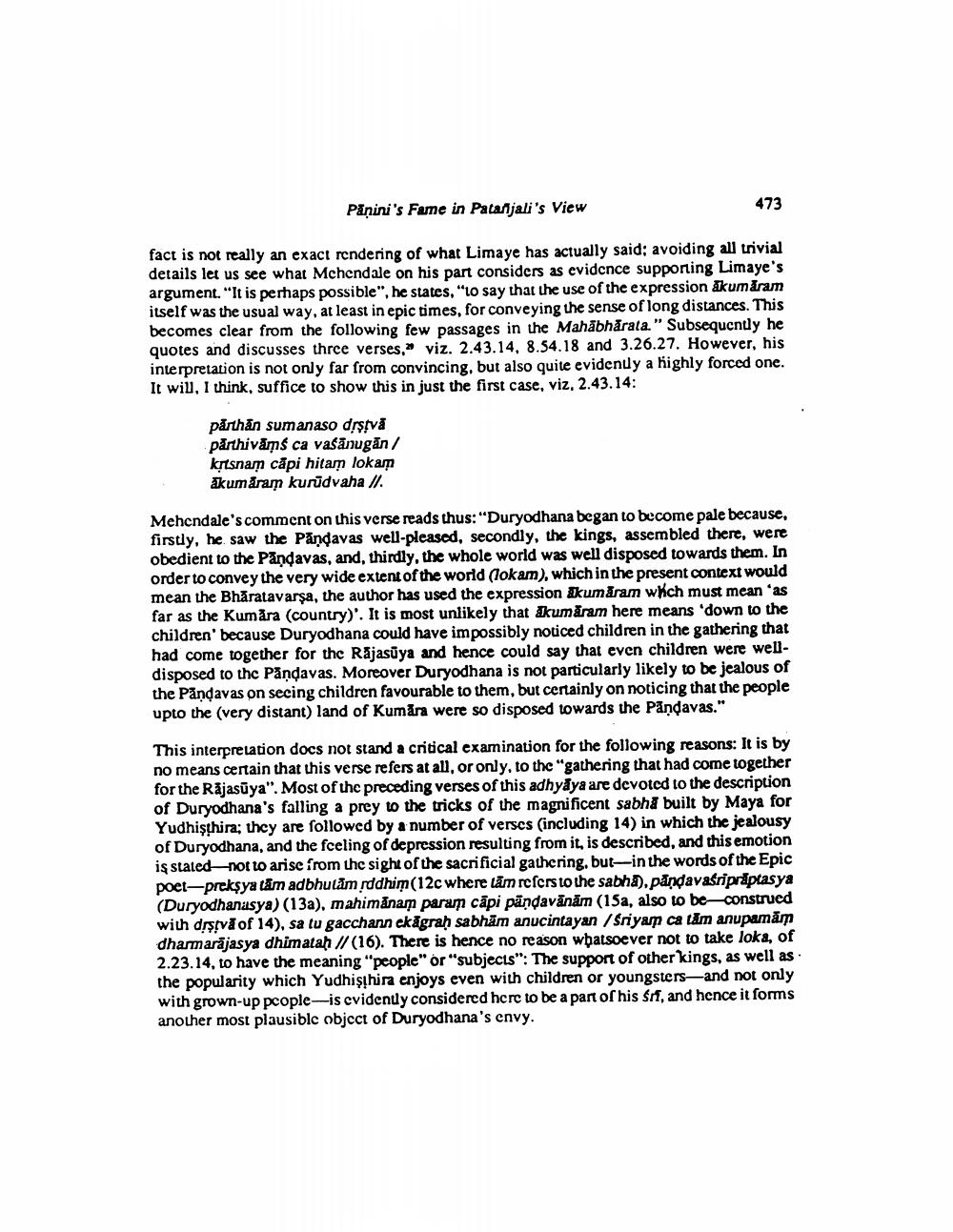Book Title: How Far Did Paninis Fame Really Extend In Patanjalis View Author(s): A Wezler Publisher: A Wezler View full book textPage 6
________________ Pāņini's Fame in Patalijali's View 473 fact is not really an exact rendering of what Limaye has actually said: avoiding all trivial details let us see what Mchendale on his part considers as evidence supporting Limaye's argument. It is perhaps possible", he states, “lo say that the use of the expression akumāram itself was the usual way, at least in epic times, for conveying the sense of long distances. This becomes clear from the following few passages in the Mahābhārata." Subsequently he quotes and discusses three verses, viz. 2.43.14, 8.54.18 and 3.26.27. However, his interpretation is not only far from convincing, but also quite evidenty a highly forced one. It will, I think, suffice to show this in just the first case, viz, 2.43.14: părthān sumanaso drstva parthivāmś ca vasānugān/ kitsnam căpi hitam loka akum åram kurūdvaha ll. Mehcndale's comment on this verse reads thus:"Duryodhana began to become pale because, firstly, he saw the Pandavas well-pleased, secondly, the kings, assembled there, were obedient to the Pandavas, and, thirdly, the whole world was well disposed towards them. In order to convey the very wide extent of the world (lokam), which in the present context would mean the Bhāratavarşa, the author has used the expression akumāram whch must mean 'as far as the Kumara (country)'. It is most unlikely that Akumāram here means 'down to the children' because Duryodhana could have impossibly noticed children in the gathering that had come together for the Rajasūya and hence could say that even children were welldisposed to the Pandavas. Moreover Duryodhana is not particularly likely to be jealous of the Pandavas on secing children favourable to them, but certainly on noticing that the people upto the (very distant) land of Kumara were so disposed towards the Pandavas." This interpretation docs not stand a critical examination for the following reasons: It is by no means certain that this verse refers at all, or only, to the "gathering that had come together for the Rājasūya". Most of the preceding verses of this adhyāya are devoted to the description of Duryodhana's falling a prey to the tricks of the magnificent sabha built by Maya for Yudhisthira; they are followed by a number of verscs (including 14) in which the jealousy of Duryodhana, and the feeling of depression resulting from it, is described, and this emotion is stated not to arise from the sight of the sacrificial gathering, but in the words of the Epic poet-prekşya tam adbhulam rddhim(12c where tām refers to the sabha), pandavasripraptasya (Duryodhanasya) (13a), mahimånam param cāpi pandavānām (15a, also to be construed with distvā of 14), sa tu gacchann ekāgrah sabhām anucintayan / Sriyan ca tăm anupamām dharmarajasya dhimatah // (16). There is hence no reason whatsoever not to take loka, of 2.23.14, to have the meaning "people" or "subjects": The support of other kings, as well as the popularity which Yudhişhira enjoys even with children or youngsters—and not only with grown-up pcople-is evidently considered here to be a part of his fri, and hence it forms another most plausible object of Duryodhana's envy.Page Navigation
1 ... 4 5 6 7 8 9 10 11
